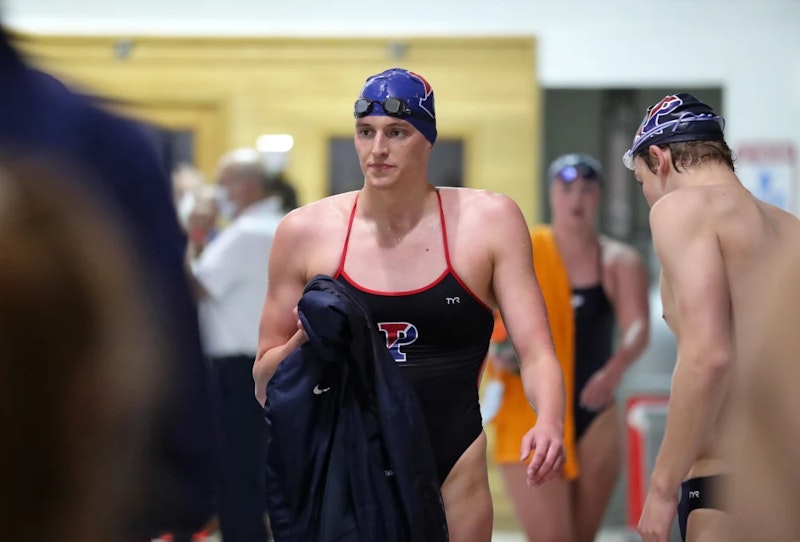The National Association of Intercollegiate Athletics (NAIA) recently embraced common sense regarding transgender athlete participation, and it now provides a path for colleges across America to do the same.
The NAIA's Council of Presidents voted last week to update the organization's transgender athlete policy. The largest change made males who identify as transgender women only eligible to compete in men's sports rather than women's sports. It's welcome news and should ensure safe and fair competition on the women's side while rejecting the transgender ideology.
Colleges and universities whose sports teams compete in the NCAA and other bodies that allow males to compete in women's sports can leave their respective organizations and become NAIA schools. States could also shift some of their colleges and universities from the NCAA to the NAIA since the NCAA fails to address the transgender athlete problem. Maybe this isn't a solution for every NCAA school. Powerhouse Division 1 athletic programs won't abandon the organization. Think of a school like Hillsdale College. It's a small Christian, conservative private school that competes in NCAA Division 2; why shouldn't it move to the NAIA to be more consistent with its values?
Males in women's sports are a small yet existent problem in the NCAA. Notably, Penn swimmer Lia Thomas won an NCAA Division 1 national championship in women's swimming in 2022, and Franklin Pierce track runner Cece Telfer won an NCAA Division 2 women's outdoor track and field national championship in 2019.
Most transgender athlete dominance occurs in high school sports, where males have won state championships in a few New England states and male athletes have injured females across the country—whether Massachusetts, North Carolina or Guam. Such instances at the high school level are increasingly common, meaning that when these students graduate, they may play college sports and continue their dominant athletic careers. Or, a male who identified as a boy during high school may start identifying as a member of the opposite sex during college, meet the NCAA's transgender athlete guidelines to participate, and have a dominant career. That's what happened in the cases of both Thomas and Telfer; both started their collegiate careers as members of the male teams in their respective sports at their schools; neither Thomas nor Telfer was a standout athlete on the men's side.
Nothing says that if a school wants to have college sports teams, those teams must compete in the NCAA. Many smaller collegiate sports bodies exist, but the NAIA is the third-largest. The NAIA has 241 member schools and counting, whereas the NCAA has just over 1100 schools between its three divisions. The NJCAA is the second-largest, with 525 member schools, but the organization only serves two-year colleges.
The NAIA continues growing; 23 new schools have joined the NAIA since 2020, including five former NCAA members. There are ways that allow schools to withdraw from the NCAA and join another collegiate sports organization, including the NAIA, meaning this isn't some radical pipe dream.
Some may hope NCAA President Charlie Baker changes the organization's transgender athlete policy, but that will never happen for two reasons. One is that Baker governed a state where males have competed in women's sports for decades: Massachusetts. A Supreme Judicial Court interpretation of the state's Equal Rights Amendment over 40 years ago determined that boys can compete in girls' high school sports, provided their school lacks an equivalent boys' team. That means Massachusetts is the only state in the country that allows boys who identify as boys to compete in sports like field hockey, girls' volleyball, and even girls' soccer; it occasionally happens in other states like Pennsylvania and New York, but state law prohibits it.
Baker also governed a state for eight years that lets males, who identify as members of the opposite sex, compete in women's sports, and he never opposed to it. He signed a bathroom and locker room access bill into law in 2016 and opposed the failed veto referendum to repeal the law in 2018. If Baker had no problem letting males compete from 2015 to 2023, what makes anyone think he'll have an issue with it now?
The best thing schools can do is circumvent Charlie Baker to do the right thing. Just because one liberal from the Northeast disagrees with nearly 70% of Americans on this cultural issue, that doesn’t mean schools should let him force his fringe ideology onto them.

